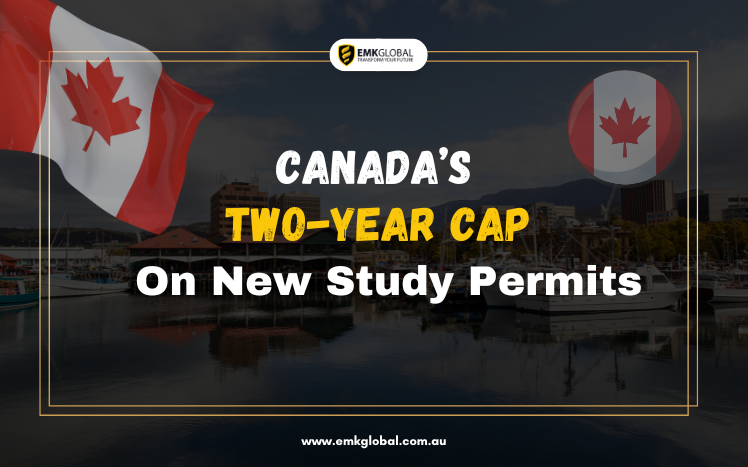Introduction
In a significant announcement, Immigration Minister Marc Miller revealed that Canada will implement a temporary, two-year cap on the issuance of new study permits to international students. This measure, effective for 2024 and 2025, aims to address concerns related to the quality of education and integrity within the student visa program.
Reason Behind the Cap
Minister Miller, speaking in Montréal on 22 January, emphasized the need to guarantee a high-quality education for incoming international students. The government’s decision is driven by the desire to prevent under-resourced institutions from taking advantage of students and charging exorbitant tuition fees.
Cap Details: A 35% Reduction and Provincial Allocations
The temporary cap is expected to result in a 35% reduction in new study permits issued in 2024 compared to the previous year. Allocations will be based on provincial populations, with some provinces facing more substantial reductions than others.
Exemptions and Impact on Different Levels of Study
The cap will not apply to graduate-level programs, including master’s and doctoral studies, ensuring that high-level education remains unaffected. Additionally, elementary and secondary school level study permit applications are exempt. However, questions arise about the actual reduction percentage considering these exemptions.
Additional Requirements: Provincial Attestation and Application Process
To strengthen the application process, applicants must provide a provincial attestation along with their study permit application, effective immediately. Provinces and territories are expected to establish this process by March 31, 2024, enhancing the overall transparency and accountability of the system.
Continuity for Existing Students: No Impact on Continuing Students
Reassuringly, Minister Miller clarified that the cap will not affect applicants within Canada looking to extend their studies. Continuing students and current study permit holders in Canada will not be subject to the cap, ensuring fairness and program continuity.
Changes in Work Eligibility:
- Post-Graduate Work Permits and Open Work Permits for Spouses
Effective from September 1, 2024, post-graduate work permits will no longer be available for students in public-private partnership programs. Simultaneously, open work permits will only be allowed for spouses of international students in master’s, doctoral, and professional programs, such as medicine and law.
- Expanding Post-Study Work Rights for Graduates
Acknowledging the limitations of the current criteria, the government plans to expand post-study work rights for graduate students. Graduates of master’s and other short graduate-level programs will soon be eligible to apply for a three-year work permit, facilitating a smoother transition to permanent residence.
Conclusion
Canada’s two-year cap on study permits reflects a commitment to ensuring the quality of education for international students. While uncertainties and concerns persist, the government’s proactive measures aim to strike a balance between controlling influx and providing opportunities for genuine academic pursuits.
(FAQs)
Q: How will the cap impact existing international students in Canada?
A: The cap will not affect existing students or those looking to extend their studies within Canada.
Q: Are all provinces subject to the same percentage reduction under the cap?
A: No, allocations will be based on provincial populations, resulting in varying percentage reductions.
Q: Will the cap apply to graduate-level programs?
A: No, the cap exempts graduate-level programs, including master’s and doctoral studies.
Q: How will the government ensure transparency in the application process?
A: Applicants must now provide a provincial attestation along with their study permit application, enhancing transparency.
Q: What changes are expected in work permits for spouses of international students?
A: Open work permits will only be available to spouses of students in master’s, doctoral, and professional programs, limiting eligibility for other levels of study.


